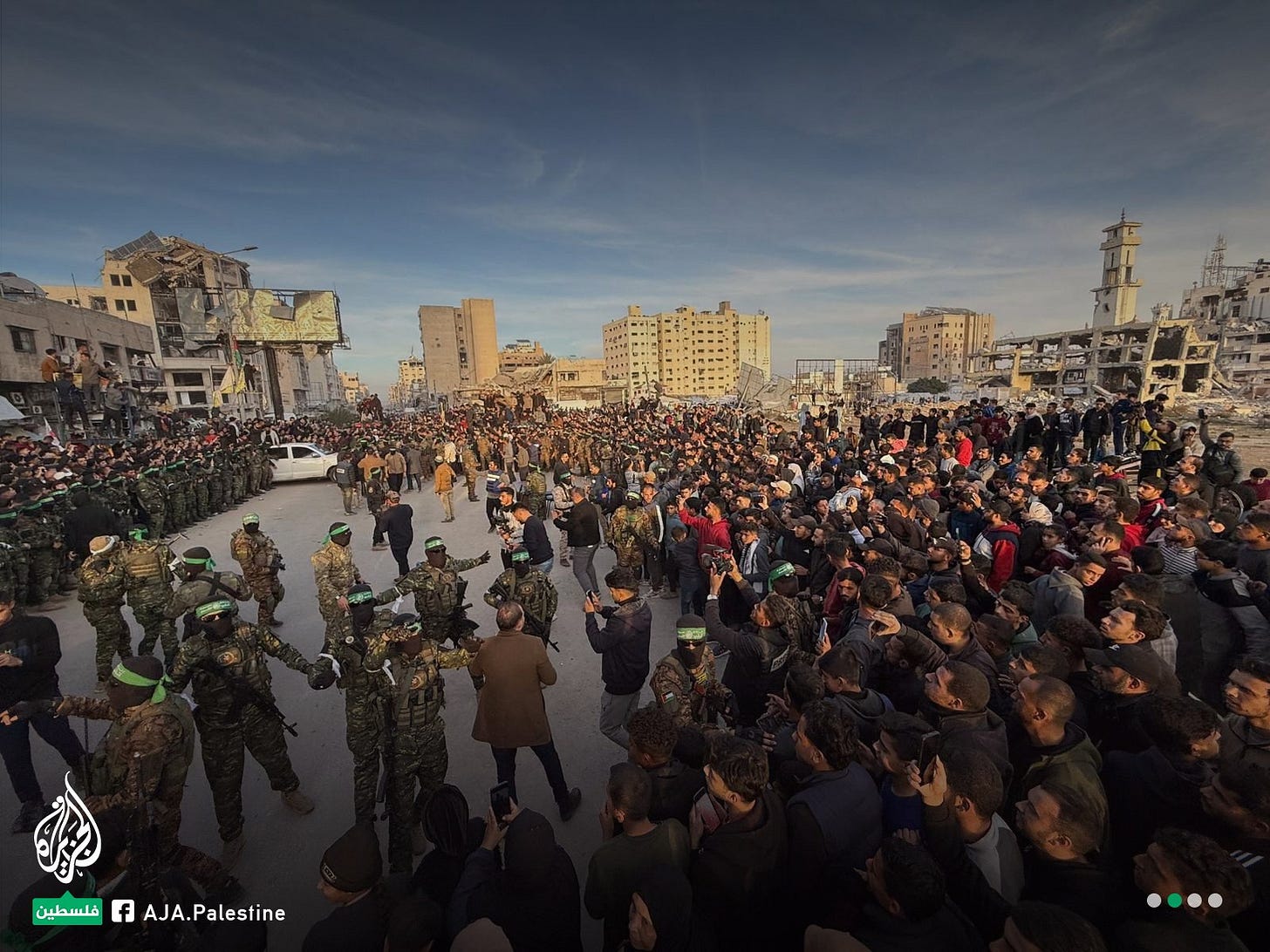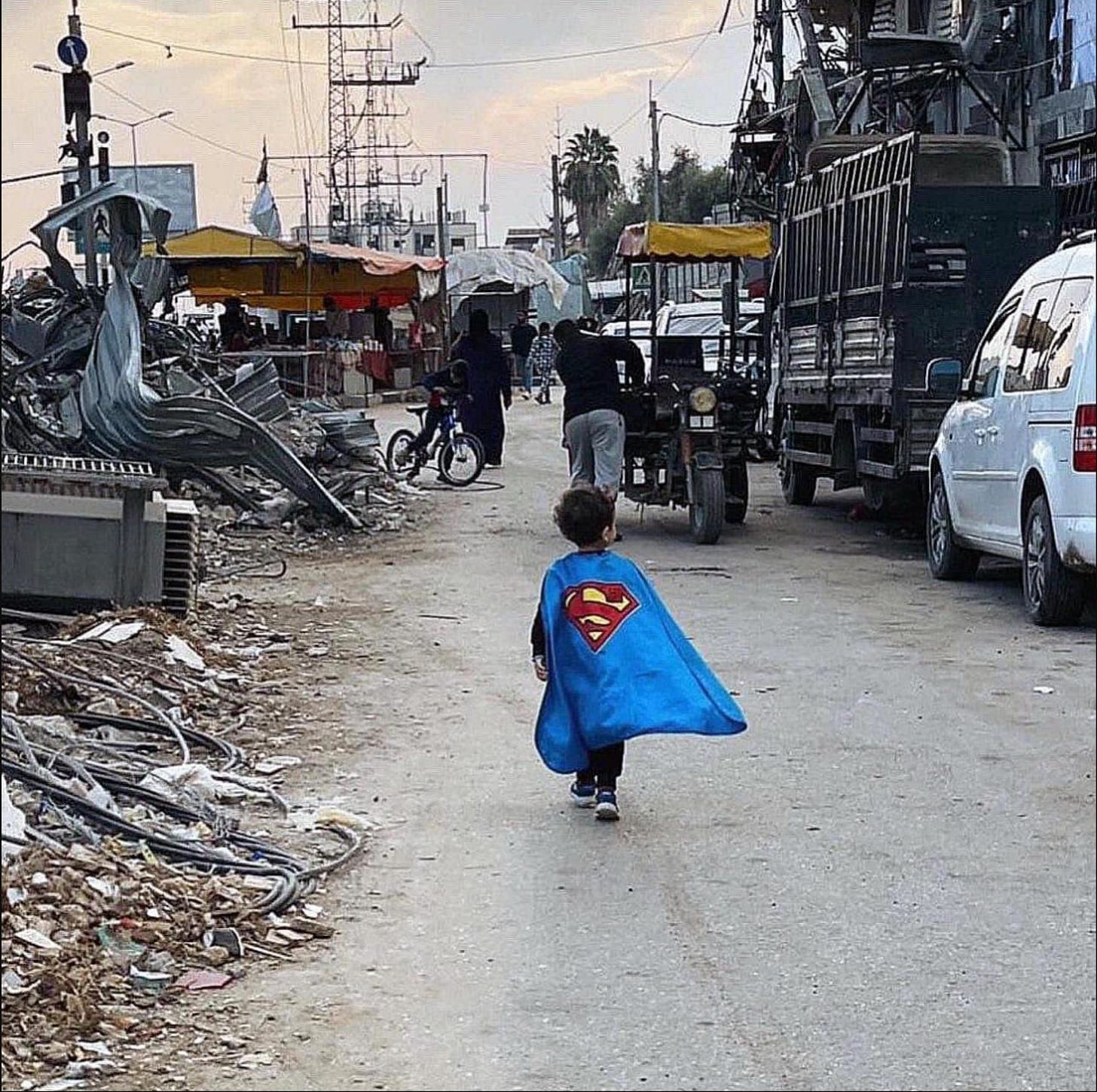Was Operation Al-Aqsa Flood on October 7, 2023, a reckless gamble or a decisive step toward liberation? What did October 7 accomplish? Should it be considered a victory or a loss? For whom? These pressing questions demand answers that go beyond the immediate devastation and loss.
In asymmetrical warfare, victory is not measured by the outright defeat of an enemy but by the ability to frustrate their objectives, expose their weaknesses, and inspire the oppressed. This war has reignited the will to resist among Palestinians, challenged the world to confront the brutal realities of apartheid and occupation, and reclaimed the global spotlight for the Palestinian cause.
October 7, 2023: Operation Al-Aqsa Flood
October 7 was more than a military operation; it struck at the heart of Israel’s existence. More than uncovering Israel’s vulnerability, it proved, with unprecedented clarity, that Israel can be defeated. This aura has always been central to Israel’s existence, as a foreign entity planted in a region where people have deep attachments to their land, religion, history, and traditions. Its survival depends on projecting overwhelming strength, not just militarily but psychologically, to make resistance seem futile.
Since 2000, Israel had been unable to secure a definitive military victory, marking the end of an era defined by swift, decisive wars. But never before had it been so evident that organized resistance movements could not only repeatedly deliver military setbacks but also achieve an indisputable thrashing of the army’s entire Gaza Division, directly undermining Israel’s projection of deterrence.
This prompted Netanyahu, fully aware of the existential threat, to respond with unrestrained brutality. His actions were not only about projecting dominance to the outside world but also about restoring a fragile sense of security within Israeli society. The Zionist psyche is deeply tied to a perception of absolute security, and any crack in this illusion risks unraveling the foundation upon which the entity is built.
In this fragile construct, the victimhood narrative plays a fundamental role. It portrays every act of resistance as senseless, barbaric, and antisemitic aggression rather than a response to oppression. By invoking historical suffering, Israel deflects criticism and recasts its violence as necessary defense. This narrative served to justify the atrocities that followed, as fear rippled through Israeli society after October 7.
Israel unleashed a campaign of unparalleled destruction, not only to punish but to pacify its own population. Scenes of devastation in Gaza, paired with announcements of hollow victories—like planting flags on Al-Shifa Hospital—were symbolic acts designed to soothe internal fear. A blood-thirsty display of force, feeding the collective psyche a false narrative of regained control.
The tragedy in Gaza left an indelible scar, not only on Palestine but on the conscience of humanity. Netanyahu’s leadership revealed the depth of the Zionist project’s fragility, where preserving the illusion of security justified the relentless destruction of lives.
The scenes of devastation and the systematic eradication of entire communities were not the collateral of war—they were the method. Gaza became the stage for a calculated display of violence, meant to crush resistance, pacify internal fear, and reassert control. Even as efforts were made to diminish the scale or significance of the atrocities, the world was forced to confront the reality of a state willing to turn human lives into tools for its survival.
For over a year, the people of Gaza endured horrors that would break most nations. They faced annihilation—not as a metaphor, but in the inhumane reality of over 50,000 lives lost, entire neighborhoods erased, and families obliterated. The Occupation deployed its full military arsenal, from white phosphorus to bunker-busting bombs, in an attempt to crush the will of a people it has besieged for over 17 years.
The justification for these atrocities, according to Israel, rested on three primary objectives: the elimination of Hamas, the complete demilitarization of Gaza, and the return of captives. These objectives proved unattainable by military force, showcasing their incompetence and turning the campaign into a complete fiasco.
What they failed to achieve in the field, they will not achieve through politics or negotiations. Their inability to secure stated objectives on the battlefield has irreparably weakened their position, exposing the futility of their broader strategy. Each failure has bolstered the resilience of the Palestinian resistance and further discredited their claims on the global stage, leaving them with no leverage to accomplish through diplomacy what they could not achieve through force.
January 19, 2025: A Defining Moment in Palestinian Resistance
When the dust settled on January 19, 2025, and the ceasefire went into effect, it became a defining day in the history of Palestine—a day that showcased the resilience, strength, and unity of its people and their resistance.
The emergence of Al-Qassam Brigades fighters from Gaza’s tunnels was nothing short of extraordinary. After 471 days of relentless bombardment, these fighters stepped into the sunlight with poise and precision, their presence exuding confidence and determination. Simultaneous appearances across the Gaza Strip, accompanied by the coordinated deployment of police and civil authorities, signified a movement that not only endured the weight of war but retained its organizational integrity, standing firm in the face of unprecedented adversity.
The fighters’ appearance, dressed in pristine green uniforms and riding in spotless vehicles, offered a striking contrast to the devastation around them. This deliberate presentation was a statement of capability and control, designed to inspire Palestinians and demoralize the enemy.
They reconnected with their people, standing among the crowds and reaffirming the enduring unity between the resistance and the population. Israeli commentators described the young men surrounding the fighters as the next generation of adversaries. These teenagers, shaped by destruction, displacement, and loss, carry deeply personal grievances against the Occupation that go beyond ideological or nationalistic convictions. For many, the high point of the battle of Al-Aqsa Flood marked their first experience of resistance, igniting a resolve destined to grow fiercer and more uncompromising.
The professionalism on display was undeniable. Formal release certificates for captives were issued alongside gift bags, a gesture that left International Red Cross representatives visibly astonished. High morale and healthy physical appearance among the released captives dispelled the relentless propaganda that enemy media had been spewing throughout the war. Official handover documents, signed by Al-Qassam representatives, underscored the careful planning and deliberate nature of the operation. These acts went beyond logistics—they were a strategic exercise in psychological warfare.
The narrative transformed from mere survival to defiance, asserting that the “day after” belonged to Palestine and forcing Israel and its allies to confront an unsettling new reality.
By every measure, the Zionist regime has endured a resounding failure. Its lofty proclamations of eliminating Hamas and dismantling the resistance proved hollow: plans to forcibly expel Gaza’s people into the Sinai were thwarted, attempts to recover captives through military operations ended in humiliation, and the Occupation’s leadership—once arrogantly posturing—was compelled to sign a ceasefire, bitterly conceding its limitations and defeat in an agreement whose terms had been on the table since December 2023. Reflecting on this outcome, John Mearsheimer remarked, "I think it's clearly a defeat for Israel. In fact, when I read it [the terms of the agreement], I was actually shocked to read the details."
This defeat is made more apparent by the resignations of high-profile Israeli military officials, including Chief of Staff Herzi Halevi and Southern Command leader Yaron Finkelman. Such departures are not the actions of a victorious force; they are admissions of failure. Victors do not resign. These resignations highlight the magnitude of Israel’s setbacks, reflecting its inability to achieve its objectives during the war. The Palestinian resistance has forced a reckoning within Israel’s military and political establishment, revealing critical weaknesses in its preparedness and operational capacity.
Signs of this pain and sense of failure were evident in the statements of Israeli leaders. In his resignation speech, Ben Gvir openly acknowledged, “The joy seen in the West Bank and Gaza shows who submitted in this war.” He further described the ceasefire as a “surrender deal,” an admission of defeat that clearly contrasts with the narrative of Israeli military superiority. The architect of the Generals’ Plan, General Giora Eiland, bluntly admitted, “Hamas won, and Israel suffered a resounding failure.” Even U.S. Secretary of State Antony Blinken conceded, “Hamas cannot be defeated by a military campaign… Hamas has recruited almost as many new fighters as it has lost.”
The Broader Implications of October 7
Beyond the battlefield, the Palestinian cause has reemerged as a central issue in international politics, no longer confined to the margins of global discourse. The events in Gaza have exposed the apartheid conditions imposed by the Occupation and highlighted the genocidal nature of its policies.
These revelations have compelled governments and institutions to confront uncomfortable truths that can no longer be ignored, exposing the hypocrisy of Western powers, particularly the Biden administration, and shifting political discourse in the United States and Europe in ways that were once unimaginable.
Mass protests have erupted globally, challenging Israel’s carefully curated international image. The once-untouchable Zionist regime now faces mounting legal challenges in international courts, with arrest warrants for war crimes issued against Netanyahu and Galant. Israel’s reliance on targeting civilians and committing atrocities as a substitute for decisive military victories has been laid bare.
After months of relentless bombardment, mass slaughter, and extreme collective punishment, the Israeli army has failed to achieve its objectives. Its attempts to weaken Hamas have failed, and the narrative equating mass destruction with victory has unraveled, exposing a regime in moral and strategic collapse. This failure to deliver on promises underscores the growing fragility of a regime that once projected invincibility.
When Palestinians continually prove that attempts to reprogram their consciousness amount to nothing—most notably on October 7—it drives Israel to desperation. That day signified the complete disintegration of such efforts and affirmed the capacity of besieged Palestinians to believe, dream, plan, and act. The persistent defiance disproves the Zionist assumption that "the old will die, and the young will forget." Instead, each generation carries the struggle forward with renewed determination.
The courage and resilience of Gaza have inspired generations to hold on to their identity and their aspirations for liberation. These sacrifices are not in vain; they are the foundation upon which a future free of oppression will one day stand. Their steadfastness inspired us; their bravery moved us. One day, we will say these devastating sacrifices liberated us. Gaza liberated us.








🇵🇸💚
🇵🇸🇵🇸